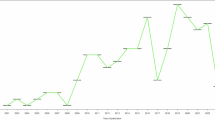
Overview
- Addresses ethical dilemmas facing all branches of Anthropology.
- Presents contributions from archaeology, cultural anthropology, history, philosophy, and medicine.
- Investigates Amerindian case studies ranging from Amazonian rainforest tribes and Mississippian chiefdoms to Mesoamerican and Andean civilizations.
- Includes scholarly perspectives by five authors of Amerindian descent
- Includes supplementary material: sn.pub/extras
Access this book
Tax calculation will be finalised at checkout
Other ways to access
About this book
The decision to publish scholarly findings bearing on the question of Amerindian environmental degradation, warfare, and/or violence is one that weighs heavily on anthropologists. This burden stems from the fact that documentation of this may render descendant communities vulnerable to a host of predatory agendas and hostile modern forces.
Consequently, some anthropologists and community advocates alike argue that such culturally and socially sensitive, and thereby, politically volatile information regarding Amerindian-induced environmental degradation and warfare should not be reported. This admonition presents a conundrum for anthropologists and other social scientists employed in the academy or who work at the behest of tribal entities.
This work documents the various ethical dilemmas that confront anthropologists, and researchers in general, when investigating Amerindian communities. The contributions to this volume explore the ramifications of reporting--and, specifically,--of non-reporting instances of environmental degradation and warfare among Amerindians.
Collectively, the contributions in this volume, which extend across the disciplines of archaeology, anthropology, ethnohistory, ethnic studies, philosophy, and medicine, argue that the non-reporting of environmental mismanagement and violence in Amerindian communities generally harms not only the field of anthropology but the Amerindian populations themselves.
Similar content being viewed by others
Keywords
- American Indian communities and social violence
- American Indian relationship with the environment
- American indian attitudes towards conservation
- Amerindian warfare
- Amerindian warrior tradition
- debunking Amerindian stereotypes
- environmental concerns and violence among Amazonian indians
- ethical concerns with reporting anthropological data
- indigenous natural resource use
- revisionist history of Amerindians
- suppresion of anthropological and ethnographic data
Table of contents (19 chapters)
-
Front Matter
Editors and Affiliations
About the editors
Dr. Richard John Chacon is an associate professor of Anthropology in the Department of Sociology and Anthropology at Winthrop University. His research interests include human behavioral ecology, natural resource conservation, warfare, belief systems, medical anthropology, and the indigenous peoples of the Americas.
Dr. Rubén G. Mendoza is a professor of Anthropology in the Department of Social, Behavioral, and Global Studies at the California State University, Monterey Bay. His research interests and publications address pre-Hispanic and Colonial era art, architecture, cosmology, and Amerindian warfare, ritual violence, and social complexity.
.
Bibliographic Information
Book Title: The Ethics of Anthropology and Amerindian Research
Book Subtitle: Reporting on Environmental Degradation and Warfare
Editors: Richard J. Chacon, Rubén G. Mendoza
DOI: https://doi.org/10.1007/978-1-4614-1065-2
Publisher: Springer New York, NY
eBook Packages: Humanities, Social Sciences and Law, Social Sciences (R0)
Copyright Information: Springer Science+Business Media, LLC 2012
Hardcover ISBN: 978-1-4614-1064-5Published: 14 December 2011
Softcover ISBN: 978-1-4899-8962-8Published: 03 March 2014
eBook ISBN: 978-1-4614-1065-2Published: 15 December 2011
Edition Number: 1
Number of Pages: XVI, 524
Topics: Anthropology, Ethics, Regional and Cultural Studies, Archaeology



